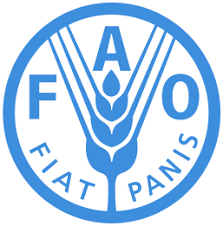The World Bank is a vital source of financial and technical assistance to developing countries around the world. We are not a bank in the ordinary sense but a unique partnership to reduce poverty and support development. The World Bank Group has two ambitious goals: End extreme poverty within a generation and boost shared prosperity.
- To end extreme poverty, the Bank's goal is to decrease the percentage of people living on less than $1.25 a day to no more than 3% by 2030.
- To promote shared prosperity, the goal is to promote income growth of the bottom 40% of the population in each country.
The World Bank Group comprises five institutions managed by their member countries.
The World Bank Group and Land: Working to protect the rights of existing land users and to help secure benefits for smallholder farmers
The World Bank (IBRD and IDA) interacts primarily with governments to increase agricultural productivity, strengthen land tenure policies and improve land governance. More than 90% of the World Bank’s agriculture portfolio focuses on the productivity and access to markets by small holder farmers. Ten percent of our projects focus on the governance of land tenure.
Similarly, investments by the International Finance Corporation (IFC), the World Bank Group’s private sector arm, including those in larger scale enterprises, overwhelmingly support smallholder farmers through improved access to finance, inputs and markets, and as direct suppliers. IFC invests in environmentally and socially sustainable private enterprises in all parts of the value chain (inputs such as irrigation and fertilizers, primary production, processing, transport and storage, traders, and risk management facilities including weather/crop insurance, warehouse financing, etc
For more information, visit the World Bank Group and land and food security (https://www.worldbank.org/en/topic/agriculture/brief/land-and-food-security1
Resources
Displaying 1846 - 1850 of 4907Climate Trends and Impacts in China
This discussion paper summarizes
observed and projected trends in extreme weather events,
present-day climate variability, and future climate change
and their impacts on China's different regions.
Findings are presented from China's national assessment
report on climate change (2007) and second national
assessment report on climate change (2011) as well as other
studies by Chinese and international experts. In addition to
Examining the Effectiveness of Legal Empowerment as a Pathway Out of Poverty : A Case Study of BRAC
This paper examines the current status
of justice and dispute-resolution mechanisms in Bangladesh,
ranging from the formal justice system to the traditional
shalish (a form of dispute resolution), and focuses on the
costs and benefits of utilizing nongovernmental organization
(NGO)-led legal services programs as an alternative form of
justice delivery and dispute resolution for the poor, with a
focus on women and girls. In particular, this paper takes a
Climate and Disaster Resilience : The Role for Community-Driven Development
This paper is part of a larger effort to
document, assess, and promote scalable models and approaches
to empower poor communities to manage a climate and disaster
risk agenda in support of their development goals and to
identify practical ways of getting climate and disaster risk
financing directly to the ground level where impacts are
felt. Social funds, social protection systems and safety
nets, community-driven development (CDD) projects,
Romania : Integrated Water Resources Rapid Assessment
The purpose of this report is to assess
the climate change impacts on water resources in Romania
from an integrated, multi-sectoral perspective, and to
recommend priority actions for addressing the identified
risks and opportunities. The analysis is presented from an
integrated water resources perspective, thereby including
all pertinent water-related sectors, viz. municipal water
supply and sanitation, industrial water supply, agriculture,
ICT IN SUPPORT OF EVIDENCE BASED POLICY MAKING: LAND AND GENDER IN THE WESTERN BALKANS
March 2014 – This article presents a joint FAO and World Bank initiative to integrate the Voluntary Guidelines on the Responsible Governance of Tenure of Land, Fisheries and Forests in the Context of National Food Security principles on gender equality into the Bank financed land administration projects in six Western Balkans countries. Even though the land agencies generate inordinate amounts of data, these are not efficiently used to inform policy makers, because of lack of capacity and manpower to properly process and link them between sub-sectors and over time.







